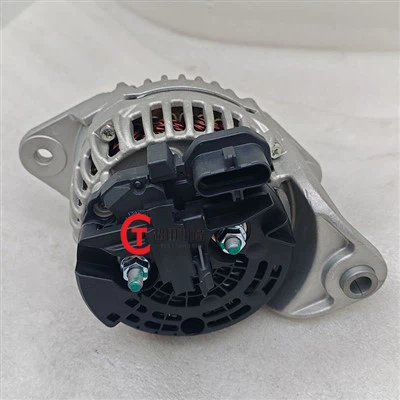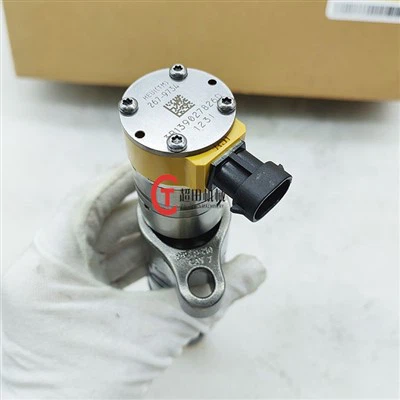Hey there, fellow gamers! If you're into 3D gaming, you know that having the right monitor can make or break your gaming experience. As a monitor supplier, I've seen it all, and I'm here to share some tips on how to choose the perfect monitor for your 3D gaming needs.
Screen Size
Let's start with screen size. It's like choosing the size of your TV for a movie night. A larger screen can immerse you more in the game, making you feel like you're right in the middle of the action. For 3D gaming, I'd recommend going for at least a 27 - inch monitor. This size gives you enough space to take in all the details of the 3D environment without straining your eyes. However, if you have a small gaming setup, a 24 - inch monitor can also work well. Just make sure it's not too small that you miss out on the cool 3D effects.
Resolution
Resolution is super important. It determines how sharp and clear the images in your game will look. The higher the resolution, the more detailed and realistic the 3D world will appear. The most common resolutions for gaming monitors are 1080p (1920x1080), 1440p (2560x1440), and 4K (3840x2160).
If you're on a budget, 1080p is still a great option. It offers a good balance between performance and cost. But if you can afford it, 1440p is a sweet spot. It provides significantly more detail than 1080p, and most modern graphics cards can handle it well. And if you're really serious about 3D gaming and have a high - end PC, 4K is the way to go. The level of detail in 4K is just mind - blowing, and it makes the 3D games look like real - life scenes.
Refresh Rate
The refresh rate is measured in Hertz (Hz). It tells you how many times the monitor updates the image on the screen per second. A higher refresh rate means smoother motion in games, which is crucial for 3D gaming. When you're running around in a 3D world, a low refresh rate can cause blurring and ghosting, ruining the whole experience.
For casual 3D gaming, a 60Hz monitor is okay. But if you're into fast - paced 3D games like first - person shooters or racing games, you'll want a monitor with at least a 144Hz refresh rate. Some high - end monitors even offer 240Hz or 360Hz refresh rates. These super - high refresh rates make the action in games look incredibly smooth and responsive.
Response Time
Response time is another key factor. It refers to how quickly the pixels on the monitor can change from one color to another. In 3D gaming, especially in fast - moving scenes, a slow response time can lead to motion blur. You don't want to be in the middle of a 3D battle and have everything look all blurry, right?
A good response time for a gaming monitor is around 1 - 5 milliseconds (ms). Monitors with a 1ms response time are ideal for 3D gaming as they can handle the rapid color changes in fast - paced games without any noticeable blur.
Color Accuracy
Color accuracy is important for making the 3D games look vibrant and realistic. A monitor with good color accuracy can reproduce a wide range of colors, making the 3D environments look more lifelike. Look for monitors that support a wide color gamut, such as sRGB or Adobe RGB.
Some monitors also have features like HDR (High - Dynamic Range). HDR enhances the contrast between the bright and dark areas of the image, making the colors look more vivid and the details more visible. This is especially great for 3D games with a lot of lighting effects.
Viewing Angle
In 3D gaming, you might not always be sitting directly in front of the monitor. So, a wide viewing angle is a plus. A monitor with a wide viewing angle allows you to see the 3D images clearly from different positions without the colors or contrast changing too much. Look for monitors with a horizontal and vertical viewing angle of at least 170 degrees.
Connectivity
Make sure the monitor has the right connectivity options for your PC. Most modern gaming PCs have HDMI and DisplayPort connections. HDMI is great for transmitting both video and audio, while DisplayPort offers higher bandwidth, which is important for high - resolution and high - refresh - rate gaming. Some monitors also have USB - C ports, which can be useful for connecting laptops or other devices.


Curved vs. Flat Monitors
Curved monitors have become popular in recent years, and they can be a great choice for 3D gaming. The curvature of the monitor helps to immerse you more in the game by wrapping the image around your field of view. It gives you a more panoramic and immersive experience, especially in large - scale 3D games.
Flat monitors, on the other hand, are more traditional. They're great if you're used to a more standard viewing experience and don't want the distortion that can sometimes come with curved monitors. It really comes down to personal preference.
Special Features
Some monitors come with special features that can enhance your 3D gaming experience. For example, some monitors have built - in speakers, which can save you the hassle of setting up external speakers. Others have adjustable stands, allowing you to tilt, swivel, and height - adjust the monitor for a more comfortable viewing position.
Now, if you're also interested in industrial - related monitors, we have some great options. Check out our Excavator Monitor 11888261 Display Panel for Excavator Sy215c Sy195c, Excavator Diplay Panel VOE14390065 for Excavator EC180B EC210, and Display Panel 7835 - 31 - 9002 Monitor for Excavator PC200 - 8 PC270 - 8. These monitors are designed for heavy - duty industrial use, but they also offer high - quality display performance.
Conclusion
Choosing the right monitor for 3D gaming can be a bit overwhelming, but if you consider the factors I've mentioned above - screen size, resolution, refresh rate, response time, color accuracy, viewing angle, connectivity, and special features - you'll be able to find a monitor that suits your needs and budget.
If you're interested in purchasing a monitor for 3D gaming or any of our industrial monitors, feel free to reach out to us for more information and to start a procurement discussion. We're here to help you get the best monitor for your requirements.
References
- "PC Gamer" magazine, various issues on monitor reviews and gaming hardware.
- Online gaming forums and communities where gamers share their experiences with different monitors.






